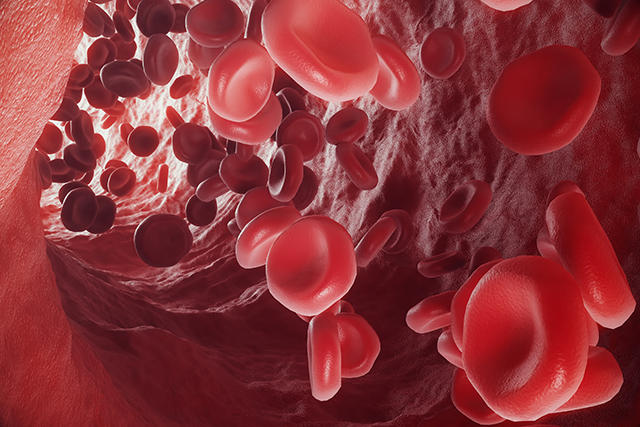Balanced potassium levels found to be critical to circadian rhythm processes, including sleep
01/03/2018 / By Zoey Sky

Like other cells in the body, red blood cells follow circadian rhythms (24-hour biological clocks). These circadian rhythms alter cell activity from day to night. But unlike other cells, red blood cells do not have DNA. Red blood cells also lack the “clock genes” which control rhythms. It was a mystery when it came to how red blood cells were regulated.
However, thanks to dielectrophoresis, a revolutionary technique and new technology developed at the University of Surrey, scientists have deciphered the electrochemical properties of human red blood cells. We now know more about their inner workings.
Scientists have reported that there is a significant variation in potassium content in the cells which are related to the circadian rhythm. Potassium increases during the day, and it decreases at night.
Once the potassium levels of the red blood cells were changed, the scientists successfully increased and decreased its levels in the cell to monitor the effect of the changes on their circadian rhythms. Red blood cells with higher levels of potassium negatively impacted the circadian rhythm of the cell. On the other hand, lower levels helped extend the duration of the cell’s alleged “day” by several hours.
Dr. Fatima Labeed, Senior Lecturer at the University of Surrey and the study’s lead investigator, says that thanks to this unique discovery, we can now look into the inner workings of “red blood cell membrane physiology and its clock mechanism,” especially where ion transport is of utmost importance. She concluded, “The study of circadian rhythms in red blood cells can potentially help us understand when and why heart attacks mostly occur during the morning. We will be looking into this further in our forthcoming studies.”
Natural ways to prevent a heart attack
A heart attack is a grave disease, but keep in mind that you can prevent it in the following ways:
- Manage your health – Being diagnosed with diabetes increases your risk for cardiovascular disease, a leading cause of death in America. It accounts for 34 percent of deaths, with some of the occurring suddenly and almost all of them being premature.
- Identify your health risks – The first significant risk of heart attacks is age. The older you are, the greater your risks are. Second is your genetic make-up.
- Avoid smoking/second-hand smoke – Cigarette smoking and second-hand exposure can increase the risks of heart disease, lung disease, peripheral vascular disease, and stroke. Try to quit smoking to improve your overall health.
- Minimize your daily calorie consumption – Obesity can be caused by diabetes, a serious cardiovascular disease. Being diagnosed with diabetes increases your risk to the same as someone who already had a heart attack.
- Exercise daily – Aside from burning calories, exercise can help activate genes that are good for our health. You can simply walk two miles daily, and you don’t even have to walk that far all in one go. Exercise is also good for treating depression and anxiety.
- Reduce stress – Stress aggravates cardiovascular disease. Severe stress can even cause a heart attack or sudden death. You can try to manage stress by having a regular workout, getting enough sleep at night, laughing more, volunteering at charities, or attending religious services.
- Read up on science updates regularly – Read the newspaper or browse online for more updates concerning various scientific topics. (Related: Tai Chi found to be pleasant and effective rehab for heart attack patients.)
You can learn more about superfoods and other natural cures at FoodFreedom.news.
Sources include:
Tagged Under: circadian rhythms, dielectrophoresis, heart attacks, medical science, nutrients, potassium, red blood cells, sleep quality




















